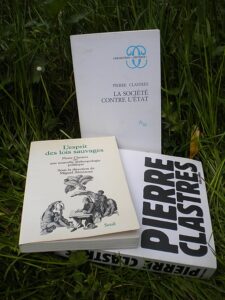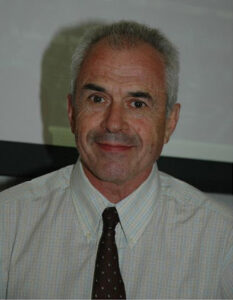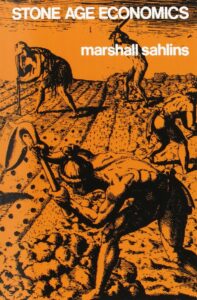The Failed Epistemologies of AI? Making Sense of AI Errors, Failures and their Impacts on Society
Editors
School of Humanities and Social Sciences
University of St. Gallen
![]()
Generative artificial intelligence tools and large language models are gaining a prominent space in our society. Probably for the first time in history, humans have now to relate and interact with technological systems capable of producing and generating new content and knowledge mimicking humans’ imagination, speech, and behaviors in ways that was not possible before. This new state of things brings inevitably profound consequences and potential sea changes for numerous social, scientific, and cultural fields raising epistemological, ethical, political economical and philosophical questions about the epistemologies of AI and the processes of knowledge production of these systems. The race for AI innovation is being framed with reference to the ‘superintelligence’ of our machines, their processing power, their ability to learn and generate knowledge. In public debate, AI technologies are admired for their powers, and feared for their threats. Yet, we are increasingly confronted with the fact that these machines make errors and mistakes, they are fallible and inaccurate, and they are often culturally biased. From Generative AI technologies that ‘hallucinate’ and invent facts to predictive policing technologies that lead to wrongful arrests, our world is quickly coming to terms with the fact that the AI we are building is not only astonishing and incredibly powerful, but often unable to understand the complexity of our human experience and our cultural worlds. Research has shown that AI errors and their problematic outcomes can’t be considered as mere coding glitches, but as the direct expression of the structural inequalities of our societies and they confront us with critical questions about our supposed anthropocentric position as knowledge-creators.
The aim of this special issue is to gather scholars coming from different fields of the social sciences and humanities to investigate how artificial intelligence systems are challenging epistemological assumptions in various societal areas and how the failures of such systems are impacting on knowledge creation and diffusion in their areas of interest. Overall, the special issue aims at overcoming dominant and hyped takes and narratives around AI and its supposed (super)powers, and critically reflect on how we can identify and learn how to coexist with the limitations of AI driven knowledge production.
Possible topics include, but are not restricted to:
Submission procedure [deadline postponed]
We invite interested scholars to submit an abstract (300 words, 3 to 5 keywords) by 8th of June, 2024 to
editors@annalsfondazioneluigieinaudi.it, veronica.barassi@unisg.ch; philip.disalvo@unisg.ch.
The issue’s editors will review the abstracts and send notifications of acceptance or rejection by the 8th of July, 2024.
The special issue will include up to 8 contributions among those received through the call for papers. Final papers (about 8000 words) will be due on 8th of December 2024. Please note that acceptance of abstracts does not necessarily imply acceptance of the paper for the special issue. For further information (including the aim and scope of the Journal), please refer to the Journal’s website.
***

Pierre Clastres’s La Société contre l’État, a Semi-centenary Estimate
In 1974, French Anthropologist Pierre Clastres published La Société contre l’État. Recherches d’Anthropologie Politique. The book aimed to contribute to developing a new Political Anthropology, focusing on the issue of power and discussing the question of the political dimension in primitive societies. What is power? Different regimes of political organization do indeed exist, among them regimes in which power, though it manifests itself everywhere, is nonetheless noncoercive, not submissive to the State model. What matters most, Clastres explains, is that these regimes, characterizing primitive societies, actively avoid the State model: they are societies against the state. How could our modern societies, adopting the State model, ever have arisen from those “against the state”?
Addressing those crucial questions, Clastres made a revolutionary contribution that never stopped arousing controversies. The modernity and topicality of this classic work lie not only in his foundation of a new Political Anthropology but, more generally, in his contribution to human sciences from a philosophical and political point of view. Clastres thought that in dealing with those questions, “ethnology would have to be broad enough in scope to meet the requirements of a general theory … of society and history”.
On the occasion of the 50th anniversary, the Annals of the Fondazione Luigi Einaudi. An Interdisciplinary Journal of Economics, History and Political Science will host an issue on Pierre Clastres, La Société contre l’État (“a Semi-centenary Estimate”), to be published in an upcoming issue of the Journal.
Possible topics include, but are not restricted to:
The special issue will include invited articles by leading scholars in anthropology and other human sciences and peer-reviewed works received through this call for papers. Therefore, we solitic papers across various disciplines – including anthropology, sociology, economics, philosophy, history and political science.
The editors of this special issue are Roberto Beneduce (Università di Torino) and Roberto Marchionatti (Università di Torino and editor of the Annals).
Submission procedure
We invite interested scholars to submit an abstract (300 words, 3 to 5 keywords) by 31 March 2023 (deadline extended) to:
editors@annalsfondazioneluigieinaudi.it, roberto.beneduce@unito.it, roberto.marchionatti@unito.it.
The issue’s editors will review the abstracts and send notifications of acceptance or rejection by 15 April 2023.
The special issue will include up to 9 contributions among those received through the call for papers. Final papers (about 8000 words) will be due on 30 November 2023.
Please note that acceptance of abstracts does not necessarily imply acceptance of the paper for the special issue.
For further information (including the aim and scope of the Journal), please refer to the Journal’s website.
***

The 1972 Stockholm Conference, Fifty Years Later: What Legacy?
The editors of the international journal The Annals of the Fondazione Luigi Einaudi. An Interdisciplinary Journal of Economics, History and Political Science are calling for proposals for a special section on “The 1972 Stockholm Conference, Fifty Years Later: What Legacy?” to be published in an upcoming issue of the journal.
The special issue is meant to commemorate the 50 years since the 1972 United Nations Conference on the Human Environment, universally known as the birthplace of global environmentalism. The Stockholm conference hosted 112 national delegations, UN specialized agencies, international NGOs, and a counter-conference organized by environmental activists. It established a range of institutional, political, intellectual, and cultural developments that made the environment a pressing global issue. Participants adopted instruments such as the Stockholm Declaration and Action Plan for the Human Environment and prepared the ground for the United Nations Environment Programme. This special issue wants to explore the conference and its legacy. The Stockholm Conference established international political goals and legal principles that have underpinned environmental discourse and law-making for a half-century. By stressing that environmental issues are inherently political – and not just scientific and technical – it devised systems for data research and monitoring. It also catalysed multilateral cooperation and treaty-making and the setup of national environmental ministries and environmental laws. Moreover, it contributed to the democratization of environmental debate and policy-making, opening to non-governmental organizations previously not included in the UN system.
Possible topics include, but are not restricted to:
– The preparation and the follow up of the 1972 Stockholm Conference, at a national, regional, and international level;
– The protagonists at the conference (personalities, organizations, and topics);
– Environmental activism before and after Stockholm 1972;
– Capitalism, the environment and concepts of sustainability;
– The tensions between environmental protection and growth;
– Science, technology and the globalization of environmental discourse;
– The cultural impact of Stockholm 1972 (literature, cinema, art, comics).
The special issue of The Annals of the Fondazione Luigi Einaudi will include approximately 10 contributions. The selected papers (about 7000 words) will undergo peer review. The editors of this special issue are Sara Lorenzini (University of Trento, member of the Editorial Board of the Annals) and Francesco Cassata (University of Genoa, editor of the Annals).
If interested, please send your abstracts (300 words, 6 to 8 keywords) by 30 March 2022
to:
editors@annalsfondazioneluigieinaudi.it, francesco.cassata@unige.it and sara.lorenzini@unitn.it
Final papers are due on 1 September 2022.
***

Workshop and monographic issues: Economics, History and Economic History in Stefano Fenoaltea’s cliometrics
Stefano Fenoaltea (1943-2020) passed away on 14th September 2020. He played a central role in introducing cliometrics in Italy. His research project, to which he devoted more than 50 years – almost all of his entire brilliant career – provided new ideas, put forward challenging new interpretations of Italian economic history during the Liberal Age, while, at the same time, bringing about a new methodological fresh air.
Economic historians should not disregard the minutiae of the reconstruction of the dynamics of individual industries, too, his deep and wise use of historical sources. Fenoaltea’s methodological lesson is not just about Italy’s economic history. All quantitative economic historians, regardless of the countries covered by their research, should study the analytical method he employed to deal with sources – and his acumen in using economic theory to understand them. Historical production series was definitely his field but it showed his logical and theoretical mastery also in other topics such as slave governance in antiquity and in the New World.
Fenoaltea’s deep methodological awareness led him to develop a thorough reflection on methodology itself. He refused methodological platitudes and framed his scientific activity within a large cultural background, claiming the importance of European classical studies. He felt strongly the need for a genuine cross-fertilization of economics and economic history with other disciplines, such as anthropology, sociology and philosophy.
On this background the Associazione per la Storia Economica (ASE) and Fondazione Luigi Einaudi, two institutions that took great advantage from Fenoaltea’s scientific engagement over the last years of activity, are organizing a joint workshop to reassess Fenoaltea’s legacy, not least to promote it among younger scholars, whom will be provided special attention in the selection process.
The workshop will be held on-line on 12th November 2021.
The Annals of the Fondazione Luigi Einaudi. An Interdisciplinary Journal of Economics, History and Political Science and Rivista di Storia Economica (https://www.mulino.it/riviste/issn/0393-3415) will both and simultaneously publish two monographic issues on “Economics, History and Economic History in Stefano Fenoaltea’s cliometrics” with papers presented at the workshop. Articles submitted to the joint workshop will be collectively reviewed by the two journals. Once accepted, papers will be published in one of the journals based on the topic and perspective. Both journals will promote an online grouping of all accepted papers.
The workshop will cover topics belonging to Fenoaltea’s research activity. The following list is only partial. It may be useful for contributors to assess the relevance of their proposals:
Submission procedure
We invite scholars to submit an abstract of the paper they would be interested in presenting at the workshop (500 words max., 3 to 5 keywords) by May 31th to alberto.baffigi@bancaditalia.it and giovanni.vecchi@uniroma2.it.
Workshop organizers (who will also act as editors of the special issues) Alberto Baffigi and Giovanni Vecchi, will send notifications of acceptance or rejection by June 30th. Full papers are due October 31th, 2021.
* * *
Marshall Sahlins’s Stone Age Economics, a Semicentenary Estimate
In 1972, American anthropologist Marshall Sahlins published Stone Age Economics. Now a classic of modern anthropology, and probably the most important work in economic anthropology, the book had a profound and critical impact on many different social sciences. From the identification and original use of the category of the mode of production to the idea of primitive affluence; from a vision of exchanges as defined also, and decisively, by their social terms to an illuminating interpretation of Mauss’s The Gift as the discover of the non-contractual element of the social contract; from the development of a cultural perspective on the economy and the alternative it provided to the economicism of formalist anthropology, with the proposal of an “anthropological economics”; the surprising modernity of Stone Age Economics provides social scientists with extremely fertile and inspiring ideas and approaches, whose continuing relevance is beyond dispute.
On the occasion of the 50th anniversary, the Annals of the Fondazione Luigi Einaudi. An Interdisciplinary Journal of Economics, History and Political Science will host a monographic issue on Marshall Sahlins’s Stone Age Economics (“A Semicentenary Estimate”), to be published in 2021.
The mission of the Annals of the Fondazione Luigi Einaudi (which builds upon the tradition of cultural openness fostered by the Fondazione Luigi Einaudi di Torino, established in 1964 by the scholar of political theory at Cornell University Mario Einaudi, with the support of the family of economist and former President of the Italian Republic Luigi Einaudi) is to contribute to promote interdisciplinarity as a method of scientific inquiry and a highly relevant issue in social sciences. It aims at facilitating communication and interdisciplinary discourse among both established international scholars and younger scholars working in different fields of social sciences. The enormous importance of Stone Age Economics for social sciences as a whole makes it particularly suitable for an interdisciplinary discussion of the kind of those the Annals are intended to host.
The special issue will include invited articles by leading scholars in anthropology and other social sciences – Sahlins himself will contribute with a paper – as well as peer-reviewed works received through this call for papers. Papers are therefore solicited across a range of disciplines – including anthropology, sociology, economics, philosophy, history, political science, and international relations.
Topics include, but are not limited to:
Submission procedure
We invite interested scholars from all social disciplines to submit an abstract (300 words, 3 to 5 keywords) by October 30, 2019 to editors@annalsfondazioneluigieinaudi.it.
The editors of the special issue, namely Mario Cedrini and Roberto Marchionatti, will review the abstracts and send notifications of acceptance or rejection by November 30.
The special issue will include up to 8 contributions among those received through the call for papers. Final papers (about 8000 words) will be due on March 31, 2020. Please note that acceptance of abstracts does not necessarily imply acceptance of the paper for the special issue.
For further information (including aim and scope of the Journal), please refer to the Journal’s website.
* * *
![]() New Geographies of the Atlantic, 19-20th centuries
New Geographies of the Atlantic, 19-20th centuries
The Editors of The Annals of the Fondazione Luigi Einaudi. An Interdisciplinary Journal of Economics, History and Political Science are calling for proposals for a monographic issue on New Geographies of the Atlantic, 19-20th centuries, to be published in 2020.
In the last three decades, scholars working in the field of Atlantic history have demonstrated the explanatory power of this geographic region as a unit of analysis. Restoring the connections and exchanges between Africans, Europeans, and American Indians, Atlantic perspectives have deepened our understanding of transformations over a period of several centuries, casted old problems in an entirely new light, and illuminated connections hitherto obscured. More importantly, privileging a history beyond national or imperial borders, Atlantic history has broken down not only old regional barriers and paradigms, but also modes of analysis based on modern cultural and political hierarchies. In this light Euro-American relations, once seen as the core of “Western civilization”, are reconsidered as part of a wider, multicentered transnational space.
The coherence of the Atlantic does not mean however that the region was hermetically sealed off the rest of the world. Since 1492 the Atlantic space had been drawn into global ties that intensified in the 19th century thanks to three major developments: (1) revolutions and independences in the Americas, (2) the end of the Atlantic slave trade, (3) the expanded European colonization of Africa, (4) the transportation revolution and its impact on the circulation of people, goods, and ideas across the Atlantic basin. Even though the region is no more characterized by the coherence of the previous centuries, these developments configure the Atlantic as an important laboratory within which to examine regional and global transformations. After the revolutions, the end of the transatlantic slave trade, and the expansion of European colonization in Africa, the encounters among Europeans, Native Americans, and Africans have not ceased, but they had been fundamentally transformed.
Drawing on these findings and considering the limited impact that the Atlantic history is still having in certain European countries, this thematic dossier intends to focus on the new or alternative geographies that the Atlantic paradigm has created in the 19th and 20th centuries. With the term “new geographies” we refer to specific or discrete spaces that, thanks to this approach, have gained a new political and social place in the Atlantic or global context, such as Saint-Domingue/Haiti during the Age of Revolutions and the 19th-century emancipation process. We also refer to commercial routes or markets that had been consolidated after the Atlantic revolutions or the end of the transatlantic slave trade and that eventually opened up new global connections.
In particular, this call invites scholars to propose papers that reflect on the following themes or lines of inquiry:
– Atlantic connections after the collapse of transatlantic empires;
– the transformation of the Atlantic space and the creation of global connections;
– the emergence of new political and commercial Atlantic networks;
– the role of technology and infrastructures (steamship, canals, cables etc.) in re-shaping the Atlantic space;
– the impact of the emergence of the Atlantic space on other world-regions (the Mediterranean, the Indian Ocean, etc.);
– the emergence in the XX Century of an Atlantic economic, political, and strategic space, and the contextual formation of new Atlantic networks and elites.
Submission procedure
If interested, please submit an abstract (300 words, 3 to 5 keywords) by February 15, 2019, to editors@annalsfondazioneluigieinaudi.it
The abstracts will be reviewed by the editors of this special issue, namely Mario Del Pero (SciencesPo, member of the Editorial Board of The Annals), Marco Mariano (Università di Torino), and Federica Morelli (Università di Torino). Authors will be notified of the review results by February 20, 2019.
The special issue will include around approximately 6 contributions which will be selected by the editors through peer review procedure. Final papers (about 8000 words) will be due on June 30, 2019. Please note that the acceptance of abstracts does not necessarily imply the acceptance of the paper for the special issue.
For further information (including aim and scope), please visit the Journal’s website.
* * *
![]()
Building a European Research Policy. Science and “Europeanization” after WW2
The editors of the new international journal The Annals of the Fondazione Luigi Einaudi. An Interdisciplinary Journal of Economics, History and Political Science are calling for proposals for a monographic issue on Building a European Research Policy. Science and “Europeanization” After WW2, to be published in 2019.
The issue will be prepared by Francesco Cassata (University of Genoa, editor of The Annals) and Sara Lorenzini (University of Trento, member of the Editorial Board of The Annals). It will include 8-10 papers.
The issue intends to explore the role of basic science as crucial engine of post-war European integration.
According to Kiran Klaus Patel and Ulrike von Hirschhausen, “Europeanization” has to be conceived as “a variety of political, social, economic and cultural processes that promote (or modify) a sustainable strengthening of intra-European connections and similarities through acts of emulation, exchange and entanglement and that have been experienced and labelled as ‘European’ in the course of history”. Europeanization is, therefore, not a uniform, unidirectional and teleological process, but rather “a category of practice which has been projected and performed, experienced and exported, labelled and legitimised, appropriated and emulated in a range of contexts” (Hirschausen and Patel, 2010).
Adopting a similar social constructivist approach, Johan Schot and Thomas Misa focus on how “actors design and use technology to constitute and enact European integration (or fragmentation)”. They see technology as a set of Europe-building practices “in which specific concepts and visions of Europe became embedded in particular designs for artefacts and systems” (Misa and Schot, 2005). Technology in this context serves as a grid to interpret Europe in action. Two international research projects by Schot and collaborators, one on Inventing Europe and another one on the Tensions of Europe (http://www.tensionsofeurope.eu/), have demonstrated not only the importance of this approach but also the potential for its extension to neighbouring fields.
Methodologically, this monographic issue aims to bridge the gap between history of science and social constructivist perspectives of this king in the history of European integration. Typically, successful examples of integration through science include transport and energy infrastructures, or big technological projects like Airbus. However, integration as process involves some scientific fields ranging from biology to medicine, from cybernetics to environmental sciences – with their networks of scientists, fellowships, laboratories, practices, technologies, etc. This special issue claims that scientists and their networks should be considered as crucial agents of change within the contested processes of creating a unified European scientific and cultural space.
Possible topics include, but are not limited to:
– Scientific networks and agencies as drivers of the process of “Europeanization”;
– Histories of EURATOM, EMBO, ESA, etc.;
– The role of Western European institutions (OEEC/OECD; Council of Europe; NATO) in promoting research in Europe;
– Historical developments of the EEC/EC/EU research policy;
– Science diplomacy and “Europeanization;”
– Interactions and tensions between research policies of member States and the construction of a common European research policy;
– Scientists and environment protection in Europe;
– Exporting a “European model” of scientific research. European think-tanks in a globalised world.
The special issue will include 8-10 contributions in the form of papers (8000 words) which will be selected by the editors through peer review procedure.
If interested, please send your abstract (300 words, 6 to 8 keywords) by June 1, 2018
to:
editors@annalsfondazioneluigieinaudi.it, francesco.cassata@unige.it and sara.lorenzini@unitn.it.
Fondazione Luigi Einaudi npo – Palazzo d’Azeglio
Via Principe Amedeo 34, Torino
Tel (+39) 011–835656
Copyright© 2020 Fondazione Luigi Einaudi npo